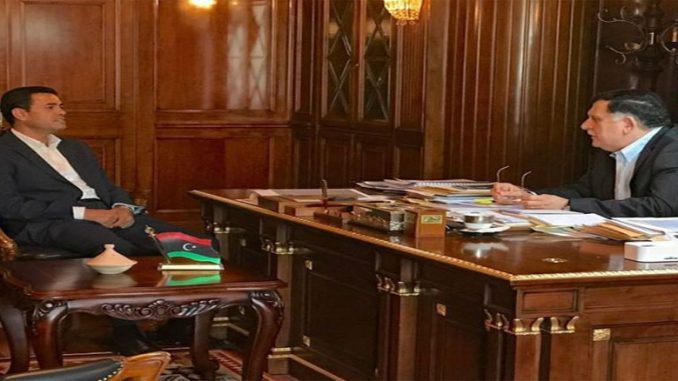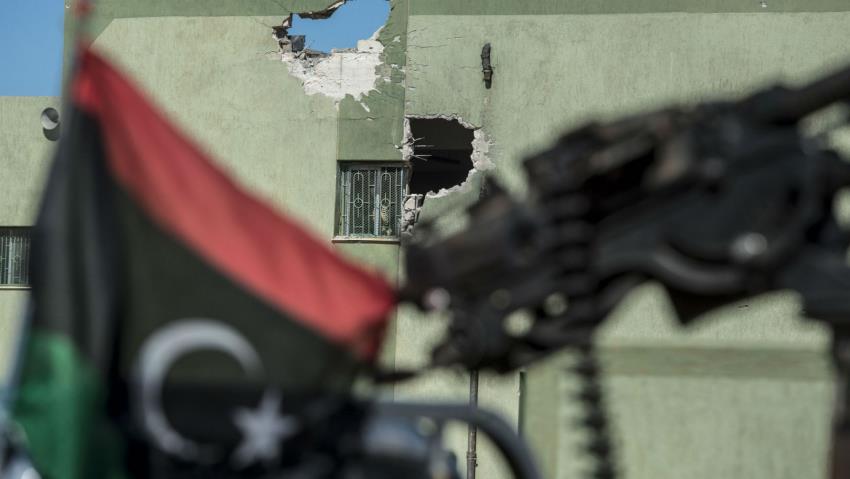
Following his call for presidential and parliamentary elections by March next year, the chairman of Presidency Council (PC), Fayez Al-Serraj had a meeting today, Wednesday, with the head of the Higher National Elections Commission, Emad Al-Sayeh, to discuss its implentation.
According to the PC’s media office, Serraj told HNEC that it needed to prepare for the elections and deal with the various problems in the system.
In reposnse, Sayeh, explained the various technical issues facing HNEC but assured Serraj that it would be able to organise elections once the political parties agree to hold them.
Mixed reaction to Serraj’s elections call
There has been mixed reaction to the call by Presidency Council leader Faiez Serraj for parliamentary and presidential elections in March next year.
There has been strong support for it from members of the State Council, but from the House of Representatives (HoR), the response has been largely negative.
HoR president Ageela Saleh was among the first to dismiss it, although last April he himself had called for elections next year. His objection in this case was that Serraj has no legal powers to make such a call, on the basis that he has never been appointed to any role by the HoR.
Describing the call as contradictory and fanciful, Benghazi member Ziyad Daghim, who is vice-chairman of the federal bloc, likewise said that the Presidency Council had no legality. He further pointed out that for such elections to take place, it would require a two-thirds vote by the HoR; in the present circumstances that was impossible, he said.
For Essam Al-Jahani, also representing Benghazi, Serraj’s initiative was a “sugar-coated bomb” aimed at the Libyan National Army which would lead the country to disaster.
Their colleague Abu Bakr Buera, who was one of the HoR’s original members of the UN-brokered dialogue team, likewise said it was unworkable. It would soon be forgotten, he believed, adding that the fact that Serraj had made the call was proof that the earlier efforts by the UAE and Libya’s neighbours to mediate between him and Khalifa Hafter had failed. To resolve the Libyan crisis would require the joint efforts of the armed forces, the HoR and the Presidency Council. All three were party to the crisis.
Other HoR members lined up to condemn the call. Saleh Fhaima (Sidra) questioned whether the election results would be accepted, stating that before any polls could take place the security problem had to be resolved. Abdulraouf Al-Manaie (Abu Sleem) similarly questioned Serraj’s legal power to make such a call.
One of the few HoR members to publicly give full support for Serraj’s move was Misrata member Mohamed Raied. Describing it as “excellent”, he said that elections would break the political stalemate.
However, holding elections at present would be difficult, he admitted, calling on the HoR and the State Council to set up a joint committee as a first step to resolving the crisis.
From the State Council (SC), the tone was almost universally supportive – perhaps reflecting the fact that Serraj’s call for elections does not affect it, but just the HoR.
Belgassem Igzeit described it as “the only way to resolve the political crisis affecting the country”. Other SC members such as Wahid Burshan and Ahmed Langhi, also welcomed the initiative.



